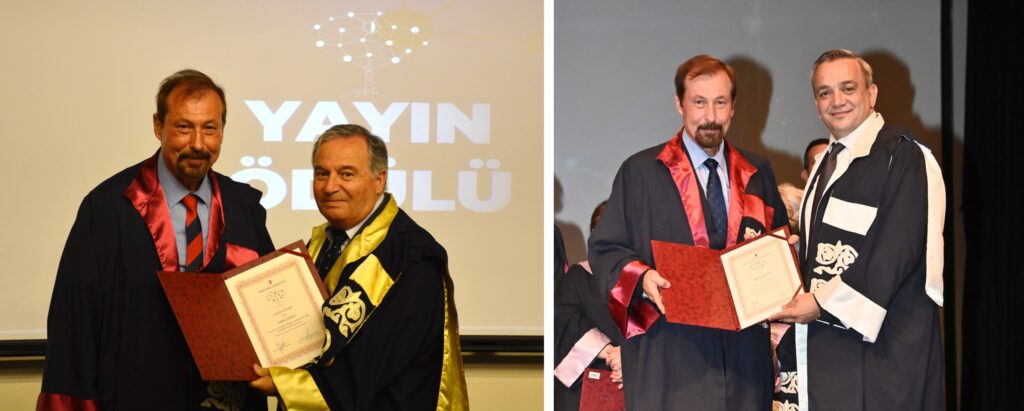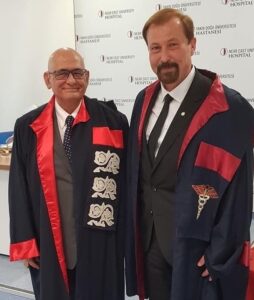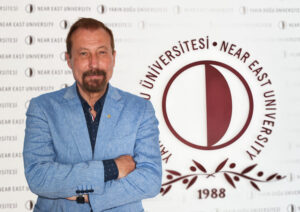
How did your academic journey begin, and what led you to conduct research in your current field?
My academic journey began in September 1987 when I passed the examination to become a research assistant at the Department of Biostatistics at Hacettepe University Faculty of Medicine. At the time, this field was still quite new in Türkiye. In fact, I started working in the first Biostatistics department established in 1985. The idea of being actively involved in every stage of research, especially in the fields of medicine and health sciences, drove my interest. Additionally, I was drawn to scientific work in health and recognized that this field would allow me to interact with a variety of disciplines beyond healthcare.

“Biostatistics plays a vital role in ensuring the reliability of clinical research and guiding public health policies.”
Can you talk about some of the most important research you’ve conducted in your field?
One of the significant projects was the evaluation of statistical data collected in the field within the scope of the “Kelkit Platformu Health-Related Project” organized by Gaziosmanpaşa University. This area, where the Yeşilırmak and Kızılırmak rivers meet, is of great importance in terms of both agriculture and health. An academic group appointed by the university conducted a year-long field study for this project.

In 2009, I collaborated with the Psychiatry Department at Gaziosmanpaşa University to apply artificial neural networks for psychiatric diagnosis classification. Using the Neural Network module of Statistica, we employed multilayer perceptron (MLP) and radial basis function (RBF) networks. The system was trained using the backpropagation algorithm, and model performance was assessed based on accuracy and error metrics.

Interdisciplinary research is essential for broadening the scope of academic studies and enhancing their scientific value. Biostatistics is inherently a multidisciplinary field and naturally integrates with other disciplines from the very beginning.
When different disciplines collaborate, they bring diverse perspectives, allowing for more effective solutions. In today’s complex world, relying on a single field is insufficient. Knowledge becomes richer and more meaningful when nourished by contributions from various areas.
“Complex global challenges require collaborative approaches that transcend disciplinary boundaries.”
What are the most important habits that support your scientific productivity as a researcher?
- Planning and time management: Organizing my research schedule and employing methods that boost efficiency are crucial.
- Lifelong learning and collaboration: Staying updated with current literature and sharing insights with academic peers enhances knowledge.
- Scientific writing: From project initiation to publication, I follow strict ethical guidelines. I often write about sampling and its methods, which are widely cited. For instance:
- Etikan, Sulaiman, Rukayya. “Comparison of Convenience Sampling and Purposive Sampling”. American Journal of Theoretical and Applied Statistics. 2016, 5(1): 1-4. – cited 20,713 times
- Etikan et al., “Comparison of Snowball Sampling and Sequential Sampling Technique”. Biometrics & Biostatistics International Journal. Biom Biostat Int J 2016, 3(1): 00055 – cited 1,266 times
- Etikan, Bala. “Sampling and Sampling Methods” Biometrics & Biostatistics Journal. Volume: 5, Issue:6, 2017 – cited 2,492 times
- Technological tools: I use specialized statistical software like IBM SPSS, SAS, RStudio, Statistica, Jamovi, Stata, JASP, and others. However, mastery over these tools must be accompanied by scientific competency.

Academic life can lead us in directions we never anticipated. Being an academic is not just about teaching at a university; it means contributing to science by conducting meaningful research.
Let me conclude with a quote that encapsulates my view:
“The future of our civilization depends on the spread and deepening of scientific thinking.” – John Dewey

Prof. Dr. İlker Etikan began his academic career in 1987 at the Department of Biostatistics, Hacettepe University Faculty of Medicine — one of the first institutions in Türkiye to formally establish this field. He later joined Tokat Gaziosmanpaşa University, where he held several academic and administrative positions, including Department Chair, Faculty Board Member, and Faculty Executive Board Member. In 2007, he was appointed as Professor.
Since 2014, Prof. Etikan has been a full-time faculty member at Near East University Faculty of Medicine, where he currently serves as Head of the Department of Biostatistics. He is also the Vice Director of the NEU Graduate School of Health Sciences and an active member of the Faculty Board, the Faculty Executive Board, the University Ethics Committee, and the Clinical Research Ethics Committee. His research continues to influence the fields of sampling techniques, applied statistics, and interdisciplinary data analysis, with widely cited publications that have made a lasting impact on the global scientific community.